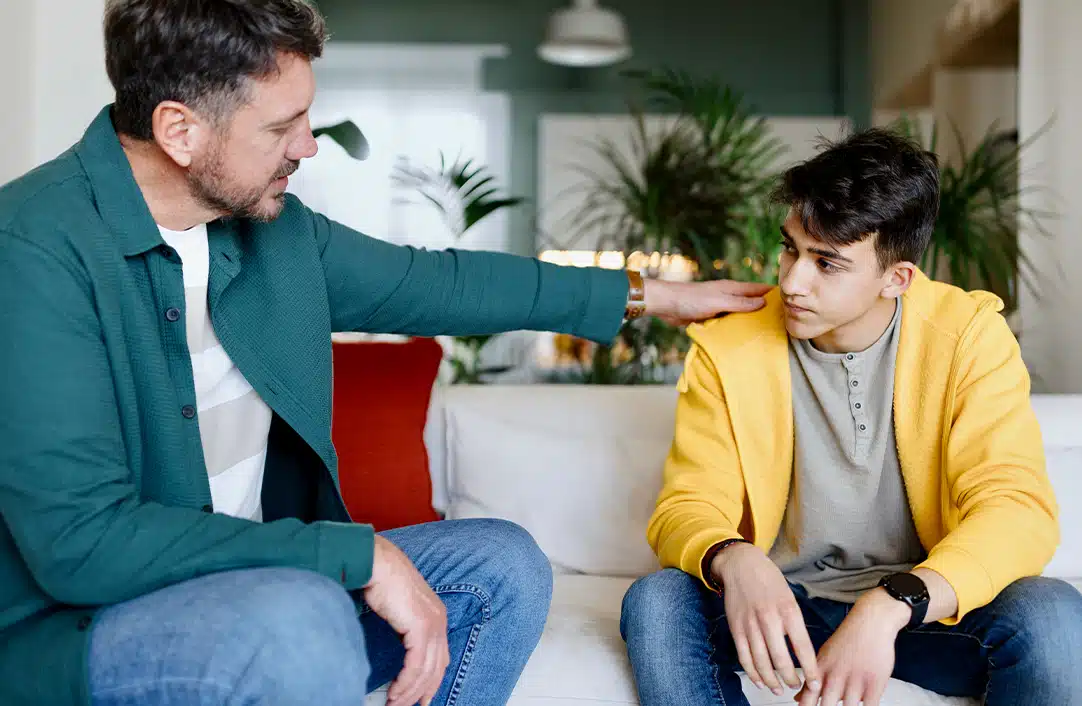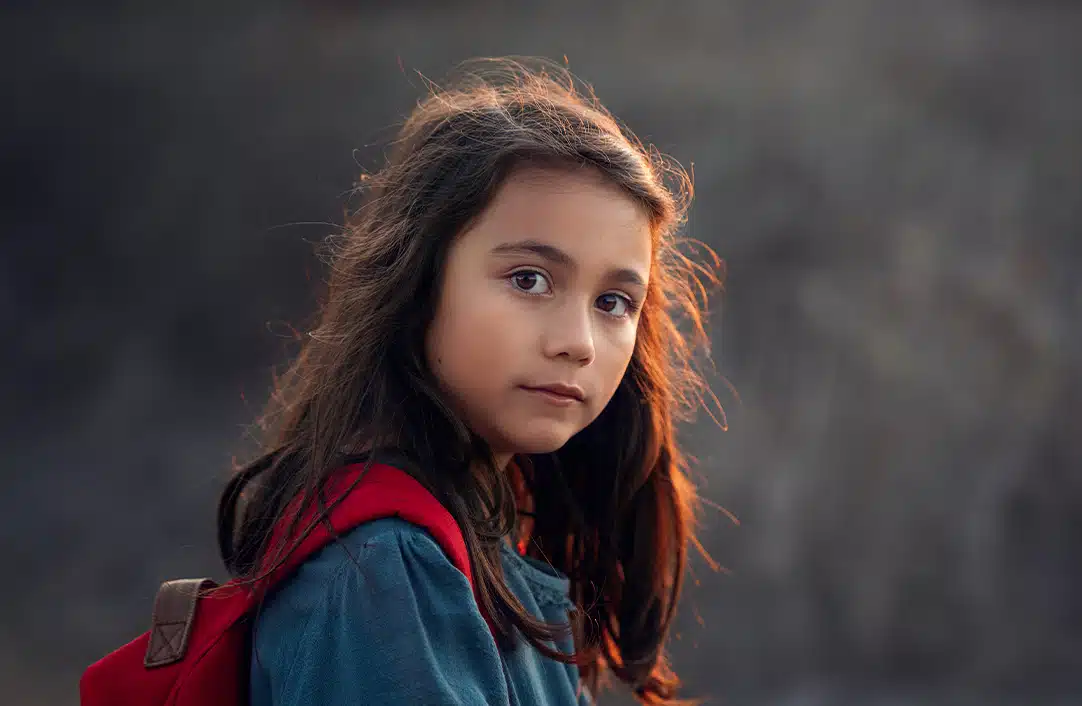Abby was excited for her birthday party. She was finally turning 8! The whole family was invited including all her aunts, uncles, and cousins. But when Uncle Josh walked in the door, she suddenly became scared and ran to her mother. “What could be going on with Abby?”, her mother wondered, “She was so excited for her party”.
Abby’s reaction to her uncle may be a sign that something more is going on. How would you know if your child has been sexually abused? There are several signs to look for that could indicate that your child may have experienced child sexual abuse.
Warning Signs
Some of the initial signs might not be as obvious as others. It is important to know what you typically see from your child to notice a change behaviorally, physically, or emotionally. These may vary based on the age or your child, environment, and upbringing. Start by looking for patterns that are outside the norm for your child.
Behavioral Signs
Some of the behavioral signs may include the following:
- Reverting to younger behaviors (bet wetting, thumb sucking, tantrums, or baby talk)
- Not wanting to be left alone, especially with certain people
- Not wanting to change clothes or bathe
- Nightmares, waking up crying, or other sleep problems
- Changes in eating habits (eating more or less, avoiding foods previously liked)
- Draws frightening or sexual images
- Inappropriate sexual behavior for the child’s age
- Keeping secrets, not wanting to talk
- Exhibits adult-like sexual behaviors, knowledge, or language
- Running away from home
- Lack of or change in personal hygiene
- Disordered eating
- Isolating
- Loss of interest in pleasurable activities
Physical Signs
Some of the physical signs may include the following:
- Pain when urinating or with bowel movements
- Underwear stained with blood or other discharge
- Increase in unexplained health problems (headaches, stomachaches)
- Problems walking or sitting
- Physical pain or itching in the genital area
- Rectal bleeding
- Unexplained bruising, particularly around genitals
Emotional Signs
Some of the emotional signs may include the following:
- Change in mood or personality including increased aggression, irritability
- Loss or decrease in interest in areas such as school, friends, or activities previously liked
- Excessive fear or worry
- Fear of being left alone, clinginess
- Self harming behaviors including hitting or scratching self, pulling out hair
- Increased self-isolation, crying, low self-esteem
- Decrease in self-confidence or self-image
- Negative self-talk (calling themselves bad, ugly)
- Severe depression and/or anxiety
Signs Usually Seen in Adolescents
In addition to some of the signs observed in children, signs for adolescents may include:
- Fear of intimacy or closeness
- Suicide ideation or attempts
- Self harming behaviors such as cutting, burning
- Drug and alcohol use
- Out of control/risky sexual behavior
- Urinary tract infections, yeast infections, STIs
Disclaimer: If you or someone you know is struggling, or in crisis, help is available. Call or text 988 to reach the Suicide & Crisis Hotline. Confidential chat is also available at 988lifeline.org 24 hours a day, 7 days a week.
It is important to remember to look for patterns of change in these areas that are sudden or atypical for your child or adolescent. Some of these signs may be part of growing up, changes in body, or explained by other factors such as divorce, bullying, or other forms of trauma. If you see signs that are of concern, it is better to take action sooner than later.
Taking Action
So, what can you do if you see signs of sexual abuse as a parent or caregiver with a child or adolescent or suspect that something is not right? Keep track of the patterns or signs you are seeing. If something seems off to you, pay attention to that feeling and investigate it further.
01
Listen and Believe
- If your child discloses abuse, listen and believe.
- Do not interrupt or ask questions to begin with.
- They may not be ready to fully disclose what has happened or is happening.
- Your child may give clues that you can follow up on to gather more information.
- If it is confirmed that sexual abuse happened, don’t shame your child in any way.
- Be encouraging, supportive.
- Get in touch with your local child protective services, sexual assault advocates, or law enforcement. (They can guide you in the steps you will need to take to report the abuse.)
02
Create a Safety Plan
- If you know the person who sexually abused your child, keep the child away from this person.
- If you are unsure who the perpetrator is, avoid having your child in potentially unsafe situations such as sleepovers, family parties, or leaving them alone with other adults.
- If your child was abused by another child in your own home, try to ensure that they are not left alone at any time.
- If the abuse was by a child at school, a cousin, or neighbor, talk to those who can help you create a safety plan.
- Watch for signs from your child when they are around people. This may give you more information.
- You may need to make major changes in your life to keep your child away from the perpetrator such as not attending family gatherings and such. Create a safety plan with your child so they know they are safe.
- This may include a safe word that indicates they feel uncomfortable or need to leave a situation.
03
Get help for your child
- This may include a trauma informed therapist or one that specializes in play therapy depending on the age of your child.
- Much of the time, if the law is involved, you will have access to a victim’s advocate that can help pay for any services your child needs.
- Continue to be supportive of your child by listening and being encouraging.
Take Care of Yourself
It is also important to take care of yourself as a parent or caregiver. It is normal to feel weighed down by shame and guilt. Self-care will allow you the ability to be present for your child and attend to their needs. Take each day one at a time. Remember, healing takes time and needs to go at a pace the child can handle. Some days may be more difficult than others, but your response and attitude will play a significant role in helping your child to heal and be resilient.
About the author
Annette Curtis, LCSW
Retreat Manager
Annette joined Saprea in 2016 after working for 23 years at a nonprofit organization with children and adolescents in the foster care system. Annette received her BS in psychology from Brigham Young University and her master’s in social work from the University of Utah. She is an experienced clinician with a background in trauma including child sexual abuse, and has worked with individuals ranging from ages four through adulthood. She is dedicated to helping those who have experienced sexual abuse trauma and its effects. When she is not at work, she is spending time with her family at home or Disneyland.
Recent blogs

Common Symptoms Experienced by Adult Survivors of Child Sexual Abuse
Childhood sexual abuse can have long-lasting debilitating effects throughout the life of a survivor. The impacts of sexual trauma are profound and far-reaching, affecting every aspect of an individual’s life—physically, psychologically, cognitively, and socially. But why is this so?
Read this article

Statute of Limitations on Sexual Abuse
In our work with individuals who were sexually abused, they often discuss the burden that comes with weighing difficult questions about when to come forward with details of the abuse they experienced. They wonder if they should take legal action or if that is even an option when the abuse occurred many years in the past.
Read this article

Effects of Child Sexual Abuse
As a clinician on the Saprea Clinical Intake team, I am often the first point of contact for anyone seeking one of our services. This gives me the opportunity to talk to many survivors of child sexual abuse. I’m often asked about specific effects of sexual abuse that the women I talk to are experiencing.
Read this article

